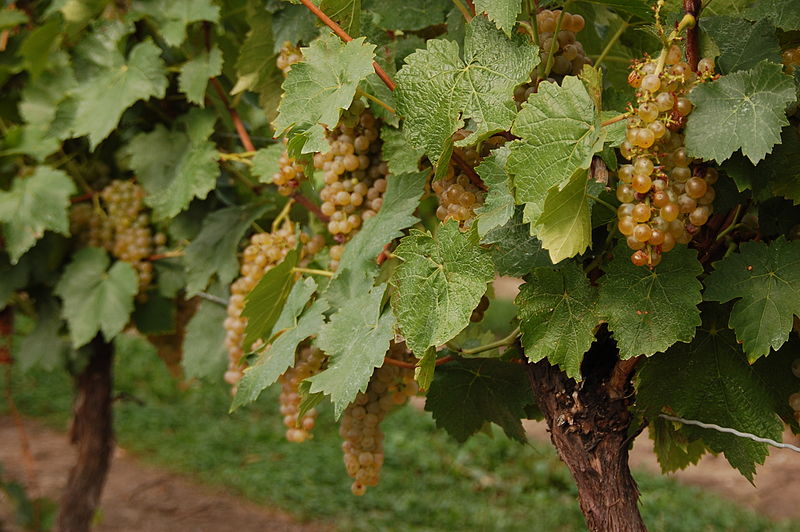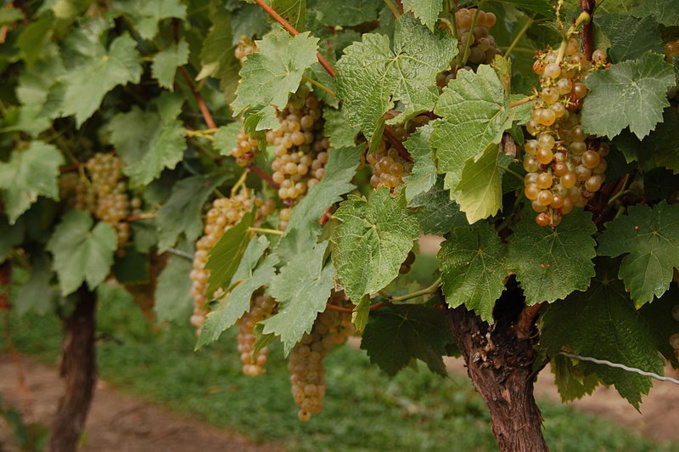This year, volume of wine produced in the world has reached four-year low after bad weather had a negative impact on crops in France and South America.
Experts estimate that global production will reach 259.5 million hectoliters, which is almost 5% less than in 2015. This, in turn, result in increased prices.
The most serious problems have arisen in the countries of the southern hemisphere, namely in Chile and Argentina. Wines produced in the current year were enough to meet consumer demand, yet production figures are now the worst in the last two decades, says The Guardian. According to International Organisation of Vine and Wine (OIV), it is another reminder of what effect of global warming and natural climate changes have on wines and grapes.
What impact will the global warming have on particular countries? Let's start with France, the world leader in production of wine. So far, global warming has been beneficial to quality of French wines, yet many vineyards may simply wither with time. Starting from 1980s, winemakers simply collect grapes a couple of weeks earlier to maintain necessary balance of acidity in wines. Now, it’s hard to tell how exactly they will resist high temperatures in future. For example, Pinot Noir in Burgundy or Merlot in Bordeaux are difficult to adapt to temperature changes, so winemaker will probably have breed new clones, or look for a more suitable area.
Australia, the land of kangaroos, beautiful nature, and light, refreshing wines. Scientists promise that local temperature will rise by 0.3-1.7% by 2030, which will change taste of the famous Syrah beyond recognition. Winemakers are already looking for new territories which would solve their problems. Moving forward, we may get a chance to try wines from the island of Tasmania, or even something more exotic.
What about countries with harsher climates, such as Canada?
Current production in Canada is concentrated mainly on Vancouver Island, Ontario. More northern areas plant frost-resistant varieties in small quantities. In just a few decades, the lands may become suitable for quite ordinary Riesling or Cabernet. This means that we risk losing Icewine.
As for Britain with its inhospitable, damp weather and the eternal mists, the global warming may do more good than harm there. Gray mold and mildew will perish, and south of England may well become a staunch opponent of Champagne.
Intergovernmental Panel on Climate Change says that temperature in the UK is rising faster than in the rest of the world. For example, average annual temperature in Sussex has increased by one degree, compared to the previous century. In the future, the British will have moist warm winters, small amount of snow and dry summers.
According to Chris Foss, Head of Wine Department at Plumpton College, the global warming will have a positive impact on the wine industry of Great Britain, as it will expand area of land suitable for growing grapes.
He was echoed by Richard C. Selley, Professor of Geology from Imperial College London, who believes that even banks of Loch Ness will grow their own vineyards.
source: phys.org, theguardian.com
Experts estimate that global production will reach 259.5 million hectoliters, which is almost 5% less than in 2015. This, in turn, result in increased prices.
The most serious problems have arisen in the countries of the southern hemisphere, namely in Chile and Argentina. Wines produced in the current year were enough to meet consumer demand, yet production figures are now the worst in the last two decades, says The Guardian. According to International Organisation of Vine and Wine (OIV), it is another reminder of what effect of global warming and natural climate changes have on wines and grapes.
What impact will the global warming have on particular countries? Let's start with France, the world leader in production of wine. So far, global warming has been beneficial to quality of French wines, yet many vineyards may simply wither with time. Starting from 1980s, winemakers simply collect grapes a couple of weeks earlier to maintain necessary balance of acidity in wines. Now, it’s hard to tell how exactly they will resist high temperatures in future. For example, Pinot Noir in Burgundy or Merlot in Bordeaux are difficult to adapt to temperature changes, so winemaker will probably have breed new clones, or look for a more suitable area.
Australia, the land of kangaroos, beautiful nature, and light, refreshing wines. Scientists promise that local temperature will rise by 0.3-1.7% by 2030, which will change taste of the famous Syrah beyond recognition. Winemakers are already looking for new territories which would solve their problems. Moving forward, we may get a chance to try wines from the island of Tasmania, or even something more exotic.
What about countries with harsher climates, such as Canada?
Current production in Canada is concentrated mainly on Vancouver Island, Ontario. More northern areas plant frost-resistant varieties in small quantities. In just a few decades, the lands may become suitable for quite ordinary Riesling or Cabernet. This means that we risk losing Icewine.
As for Britain with its inhospitable, damp weather and the eternal mists, the global warming may do more good than harm there. Gray mold and mildew will perish, and south of England may well become a staunch opponent of Champagne.
Intergovernmental Panel on Climate Change says that temperature in the UK is rising faster than in the rest of the world. For example, average annual temperature in Sussex has increased by one degree, compared to the previous century. In the future, the British will have moist warm winters, small amount of snow and dry summers.
According to Chris Foss, Head of Wine Department at Plumpton College, the global warming will have a positive impact on the wine industry of Great Britain, as it will expand area of land suitable for growing grapes.
He was echoed by Richard C. Selley, Professor of Geology from Imperial College London, who believes that even banks of Loch Ness will grow their own vineyards.
source: phys.org, theguardian.com



















